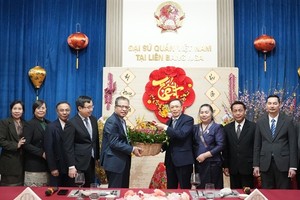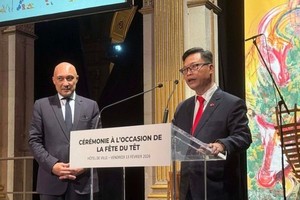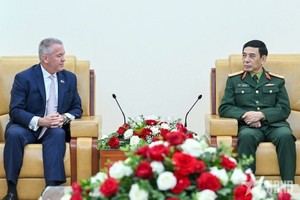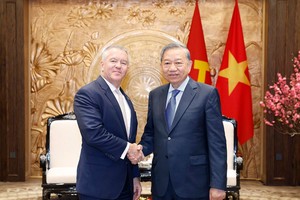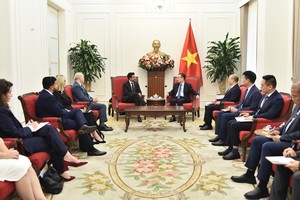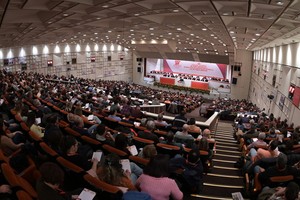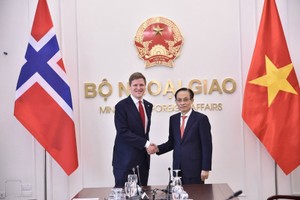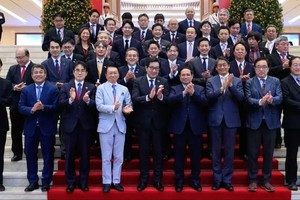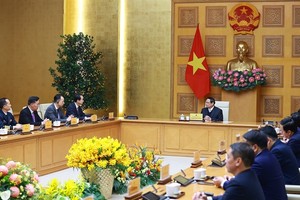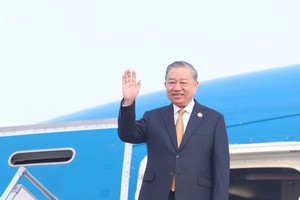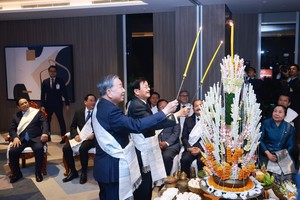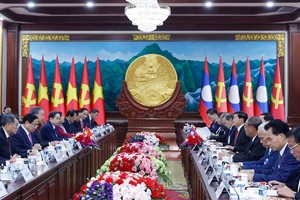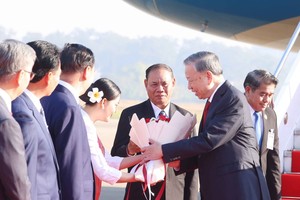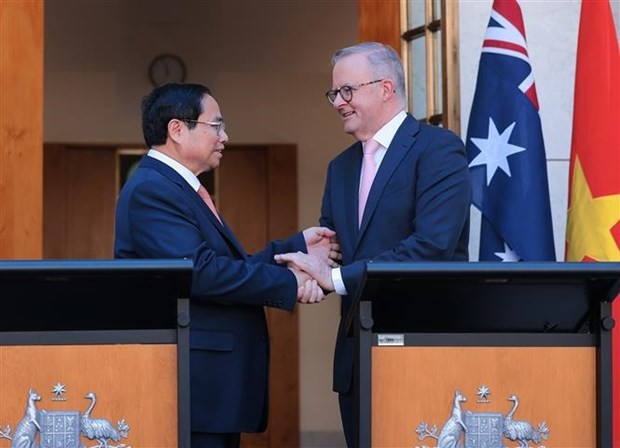
Australian PM said the upgrade of the Vietnam-Australia relationship to a comprehensive strategic partnership aims to deepen cooperation between the two countries across fields such as climate change adaptation, energy transition, digital transformation, innovation, trade and investment, agriculture, defence, and education - training.
Albanese expressed his joy that the Vietnam-Australia Comprehensive Strategic Partnership has additional cooperation pillars in combating climate change, environment, and energy cooperation, as both countries have commitments to cutting emissions to net zero by 2050.
The two sides are seeking to intensify trade and investment collaboration to promote their economic prosperity, he said, adding that Australia is currently implementing its Southeast Asia Economic Strategy to 2040, which includes areas such as enhancing business linkages and promoting investment with Vietnam.
Both sides agreed to expand education - training and labor cooperation, while discussing the importance of enhancing collaboration to protect and promote security and stability in the region, including agreeing on a peacekeeping partnership and elevating the current Vice Ministerial Security Dialogue to the Ministerial level, the Australian PM said.
He emphasised that all initiatives and cooperation programmes must be maintained and further strengthened based on connections and people-to-people exchanges between the two countries.
PM Chinh congratulated Australia on the success of the ASEAN - Australia Special Summit. He appreciated Australia's support and cooperation for Vietnam's innovation, integration, and development, especially the provision of 26.4 million doses of Covid-19 vaccines, and the maintenance of official development assistance (ODA) support at a high level for the Southeast Asian nation.
Mr. Chinh stressed that the elevation of the bilateral relationship to comprehensive strategic partnership between Vietnam and Australia will contribute to further deepening bilateral cooperation, and meeting the common aspirations of their people, for peace, stability, cooperation, and development in the region and the world.
With the new cooperation framework, the two nations will boost political trust and diplomacy; more comprehensive, substantive, and effective economic, trade, and investment cooperation; stronger cooperation in science, technology, innovation, digital transformation, and green transition; more comprehensive cooperation in culture, education, training, environmental protection, and climate change adaptation; stronger people-to-people exchange and connections between generations; more-shared security and defence cooperation towards peace, stability, cooperation, and development in the region and the world, he said.
Both sides agreed to deepen regional and international cooperation, continue to coordinate and support each other at multilateral forums, especially the UN, ASEAN, and ASEAN-led mechanisms, promote peaceful dialogue and trust building among nations, uphold ASEAN's central role, and enhance cooperation mechanisms in the Mekong Sub-region.
Regarding the East Sea issue, both sides reaffirmed the importance of ensuring peace, stability, security, safety, and freedom of navigation and aviation in the sea, and settling disputes through peaceful measures based on international law, especially the 1982 United Nations Convention on the Law of the Sea (UNCLOS 1982); and agreed to exert efforts to make the East Sea the waters of peace, stability, comprehensive cooperation and development.
The two sides pledged to create favourable conditions and ensure legitimate rights and interests for the people and businesses of both countries to live, work, and study in each other's country.
PM Chinh expressed his belief that after the upgrade, the bilateral relations will enter a new chapter with more substantive, effective, and sustainable cooperation across various fields, for the sake of the two peoples, and significantly contributing to peace, stability, cooperation, and development in the region and the world.
Previously, the two PMs witnessed the signing and exchange of 11 cooperation documents between the two countries in the areas of education - training; energy and mining; agriculture, forestry, and fisheries; science -technology and innovation; labour and employment; trade, investment, finance, and banking; defence and peacekeeping; and justice.
